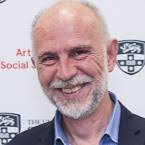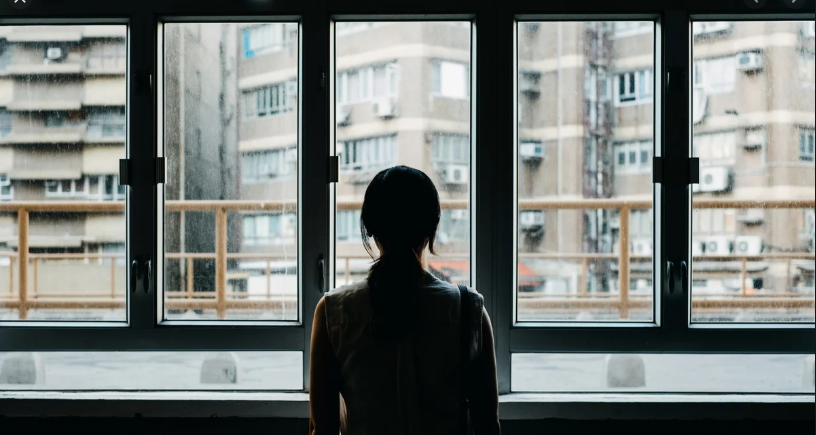By Anthony Dracopoulos, University of Sydney *

At times of deep crisis, like the one we are experiencing, humans show both their good and their bad side. On the one hand, the instinct for self-preservation, which requires us to satisfy our most basic needs, brings to the surface our aggression and competitiveness, sometimes perhaps even the bestial side of our nature. At the same time, though, we witness moments of mutual solidarity, sympathy and care for our fellow human beings, making us remember the deepest qualities of humanity.
In such periods, despite the knowledge that afterwards will not be the same as before, time plays games with us. Although in a hurry to get to the future, so as to resume what existed in the past, it hesitates and lingers. Because of that, patience, always linked to the countdown of time, is testing its endurance. Meanwhile the mind, numbed by the suspension of time, wanders among fragmented images and incomplete thoughts.
However, the present conjuncture has some unusual features. Never before have we had at our disposal so much information and so much knowledge on how to combat a pandemic. Yet that has not helped us to feel less bewildered in the face of a disease which manifested itself so suddenly, and turned out to be a slow-burning fire.
Never have we had so many restrictions changing our way of life from one day to the next, putting in place developments which in different circumstances could not have been put into practice with such speed, developments whose long-term consequences we are unable at the moment to foresee.
These measures were certainly necessary. Yet, they are startling and unusual. Who could have imagined a few months ago that things like absence – specifically absence from social space – could function as a means of suppressing a disease?
Who could have foreseen the imposition of regulations that are without precedent in limiting basic personal freedoms, as a means to prevent its spread? How could anyone have foreseen that personal isolation, tele-working and social distancing, detrimental aspects of finance capitalism, could have become a badge of responsible behaviour?
We are called upon now to adapt to new situations and conditions of life, to obey unfamiliar rules of coexistence, to rediscover the meaning of social solidarity, to find ways of managing time and cabin-fever, to make ourselves familiar with aspects of technology and human contact that until recently seemed unnecessary or even inhuman: tele-communicating, tele-working, tele-conferencing, tele-education, to prove our responsibility as social beings by staying in isolation, because that’s how we can protect not only ourselves but the whole of society, to integrate into our own life conditions which set us at a distance from our fellow human beings, but at the same time, unexpectedly, bring us close to them.
And yet this “break” from “normality” may perhaps give us the time which we lacked, in order to distance ourselves from habit and to rethink all those things that we usually put aside so as to satisfy the greedy demands of daily routine. Self- reflection always demands time.
Perhaps now we will be able to remember once more that the unrecognised existential void that we inherit through our presence in the world is not fulfilled when we are content with a daily routine without depth.
To rethink — however much we don’t want to admit it — just how vulnerable we are in the face of nature, how we all share the same fears and how death is indeed our common human destiny. To be able, perhaps, to change our grip on life and to restore the things of our world to their proper proportions.
To consider that only solitude affords us the opportunity to look deep within ourselves.
To acknowledge that to keep ourselves to ourselves, especially in our times, may actually be a reasonable reaction against the mad rhythms of the market and the hubris of excessive presence.
Above all, perhaps, to remember once more that our existence is inevitably linked to every other human being, be they a successful entrepreneur or a homeless person, unemployed, penniless, or a migrant. Precisely because the pandemic makes no distinctions, it gives proof of something that is true at a broader social level: that a failure to care for the weaker groups in society is a danger to the whole social fabric.
But the time available is not the same for everyone, however much it calls us to think on the things that unite us.
Some will be able to isolate themselves in their ivory towers, while others will of necessity stay at their posts. Medical personnel, supermarket employees, unskilled and casual workers, bus drivers, social workers, these and others will continue to offer basic services, while exposing themselves to infection.
Some among us will look for ways to exploit the situation for their own benefit, maximising their income, while the weaker groups in our society will remain hostages to the times, their survival a matter of uncertainty.
A few will concentrate on the day after, planning strategies to meet the reality which will emerge after the pandemic, while others will seek an explanation in conspiracy theories, which, as always, will content themselves with an imaginative search for those responsible.
Once difficulties come to an end, people forget. We are all in a hurry to return to normality. The forgetfulness that comes with time, as a medicine to help us deal with painful situations, with loss or failure, often makes us lose our way, failing to recognise what is important. Will we remember the things we pondered on when time went into quarantine?
For the time being, the streets are empty. The city is in hibernation. People look at you and move away or change direction. By keeping our distance we make ourselves distant. We don’t even now have occasion to get annoyed with the driver who took our spot in the carpark.
Life outside the home exists only as sound. Children’s voices are heard more frequently among the houses. Shops that remain open are inventing new ways for us to keep our distance. The delivery guys have got used to leaving packages at our door. The parks are for lonely walks only. Our favourite paths are empty.
And those of us working from home are desperately struggling to keep the virtual world of the computer screen apart from the world of reality.
* With gratitude to Dr Alfred Vincent for his input into the English version of this paper.
